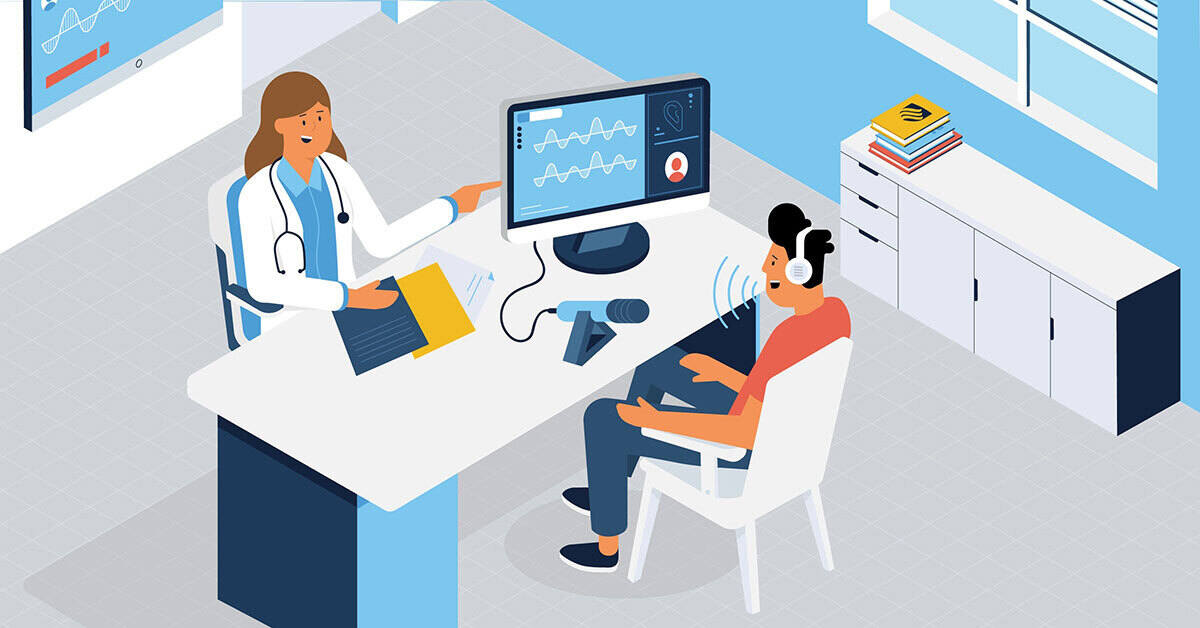Just How a Speech Pathologist Can Aid Improve Interaction Abilities
Efficient communication is a cornerstone of specialist and individual success, yet several people deal with challenges that prevent their capacity to express themselves clearly. A speech pathologist is equipped to attend to these obstacles via targeted evaluation and intervention techniques customized to each individual's requirements. By using evidence-based therapeutic techniques, they not just function to enhance speech and language conditions however additionally boost overall communicative skills. Understanding the diverse role of a speech pathologist reveals exactly how their competence can transform lives, inviting a more detailed evaluation of the details approaches and results connected with their technique.
Understanding Interaction Conditions
Understanding interaction conditions is crucial for identifying how they influence individuals' ability to express themselves and engage with others. Communication conditions include a wide variety of difficulties that affect speech, language, and social interaction, commonly impeding effective interaction. These problems can arise from various variables, consisting of neurological conditions, developing hold-ups, physical problems, or emotional concerns.
Speech conditions might manifest as difficulties in fluency, articulation, or voice production, impacting exactly how words are noticable or talked. Language disorders, on the various other hand, include obstacles in understanding or making use of language, which can impede both spoken and non-verbal interaction. Social communication conditions are characterized by problems in the pragmatic aspects of communication, such as taking turns in discussion or understanding social cues.
The consequences of communication disorders are extensive, impacting not only the person's capacity to communicate feelings and ideas but additionally their social connections, educational opportunities, and general high quality of life. Understanding of these conditions can cultivate compassion and support, encouraging effective techniques for communication and interaction. Recognizing the complexities of communication disorders is an important step in the direction of promoting inclusivity and resolving the demands of those impacted.
Function of a Speech Pathologist
Speech pathologists frequently play an essential function in identifying and treating interaction problems, utilizing a range of evidence-based methods tailored per person's demands. These professionals function with people across the lifespan, from youngsters with speech hold-ups to adults recuperating from strokes or distressing brain injuries. Their proficiency incorporates a range of communication concerns, consisting of articulation, voice, fluency, and language conditions.
In restorative settings, speech pathologists make use of structured treatments developed to enhance communication abilities. They might implement techniques such as speech exercises, language games, and social communication training to facilitate enhancements in receptive and expressive language abilities. Speech Pathologist. In addition, they educate clients and their households about efficient communication strategies and flexible methods to browse everyday communications
Beyond direct therapy, speech pathologists work together with other health care educators, caretakers, and experts to make sure a comprehensive strategy to treatment. They advocate for clients by providing sources and support, allowing individuals to attain their interaction goals and improve their general high quality of life. As specialists in the area, speech pathologists are essential in fostering reliable interaction, advertising freedom, and boosting social participation for those with interaction difficulties.
Assessment and Medical Diagnosis Refine
The evaluation and medical diagnosis process conducted by speech pathologists generally includes a thorough evaluation to recognize interaction conditions accurately. This process begins with a comprehensive medical history, where the clinician gathers relevant details regarding the individual's clinical, instructional, and developmental background. Understanding the context of the individual's interaction problems is essential for an exact diagnosis.
Adhering to the medical history, speech pathologists use casual analyses and standardized tests to assess different elements of communication, consisting of speech noise production, language comprehension, meaningful language, and social communication skills. Continue These evaluations are tailored to the person's age and certain worries, offering useful data for evaluation.
Monitoring is additionally an essential element of the analysis procedure, as it enables the clinician to see firsthand how the individual connects in natural setups. Additionally, meetings with member of the family and educators can provide understanding into the individual's communication challenges throughout various settings.
Once the analysis is complete, the speech pathologist synthesizes the findings to determine a diagnosis and advise appropriate interventions. This comprehensive evaluation process ensures that people obtain targeted support tailored to their special interaction demands, laying the structure for efficient restorative approaches.
Restorative Methods and Approaches
Countless therapeutic techniques and techniques are employed by speech pathologists to address a range of communication problems successfully. One extensively made use of method is articulation therapy, which focuses on fixing speech seems through repeating and aesthetic hints. This technique is specifically helpful for individuals with speech sound disorders.
One more effective strategy is language treatment, which boosts both meaningful and receptive language abilities. This may involve interactive activities that promote vocabulary advancement, sentence framework understanding, and conversational abilities. Furthermore, speech pathologists frequently use social go to my site abilities training to boost practical language capacities, enabling individuals to navigate social interactions extra successfully.
Fluency shaping and stuttering adjustment methods are specifically created to aid those experiencing fluency conditions. These techniques help customers establish smoother speech patterns and take care of the psychological and physical components of stuttering.
In addition, augmentative and alternate communication (AAC) systems are used for individuals with extreme interaction problems. These systems, which can include motions, icons, or digital devices, offer vital support for reliable interaction.
Benefits of Speech Therapy

Additionally, speech treatment can aid in creating vital listening and understanding skills, cultivating far better interaction in conversations. People with cognitive-communication problems can additionally profit, as treatment concentrates on enhancing memory and problem-solving abilities, crucial for reliable interaction.
An additional crucial aspect is the psychological assistance offered throughout therapy sessions. Speech pathologists develop a secure setting, motivating clients to overcome anxiousness and irritation associated to their communication problems. This support can lead to enhanced self-confidence and overall mental wellness.
Furthermore, early intervention via speech therapy can protect against more problems, ensuring that people reach their complete communicative possibility. Overall, the benefits of speech treatment prolong beyond plain speech renovation, positively influencing different dimensions of life for those impacted by communication troubles.
Verdict
In summary, speech pathologists play an important function in addressing interaction conditions through analysis, diagnosis, and customized therapeutic interventions. By using evidence-based methods, these specialists boost individuals' speech and language abilities, promoting improved clarity, fluency, and social communication skills. The benefits of very early treatment emphasize the importance of looking for aid from speech pathologists, as their knowledge can considerably enhance communicative potential, inevitably bring about better success in both professional and individual balls.

Speech pathologists often play a crucial duty in identifying and dealing with interaction disorders, using an array of evidence-based methods tailored to each individual's needs. As specialists in the area, speech pathologists are crucial in cultivating efficient communication, promoting self-reliance, and boosting social engagement for those this hyperlink with communication challenges.
